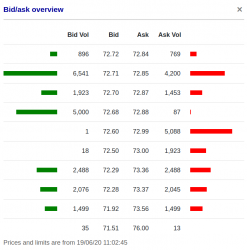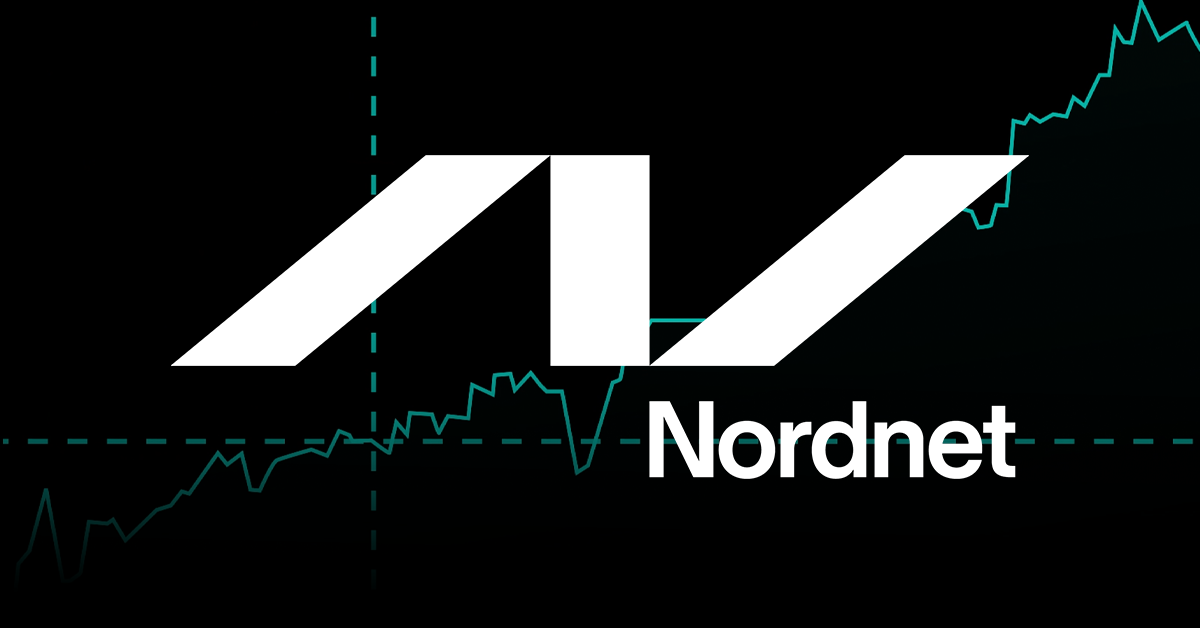From September 1, Nordnet will introduce a new pricing model for funds. We will then return the return commission we receive today from the fund managers to you as a customer. At the same time, we are introducing a platform fee. Most funds will get a lower price with the new model, but not all. Index funds and some fixed income funds are somewhat more expensive than today.
Last fall, Sbanken introduced a similar pricing model, and DNB has changed its pricing model for funds on several occasions. Many have asked what Nordnet wants to do. I'm sorry for the long time it has taken, but now it is our turn.
A little about the background for the changes
Let me start by explaining today's model: When you buy a fund, you pay an annual management fee to the fund manager. Part of this fee is paid to Nordnet as payment for distribution, marketing, customer service, tax reporting and more. Our income from fund sales is called return commission, and has normally been half the management fee.
The background and reason for the changes are related to the European regulations MIFID II, which aims at better investor protection, increased transparency, and better cost overview for you as a customer. Among other things, the regulations tighten the opportunity for distributors like us to receive return commissions for the sale of funds. Part of the purpose of the legislature has been to ensure that banks, advisors and others who sell funds to the general public have no incentives to recommend expensive funds (with a high return commission) instead of cheap funds (with a low return commission).
This is how the new platform fee becomes
As of September 1st, we will return all return commissions to you, and at the same time introduce a platform fee deducted directly from your account. The change applies to all customers, and it will not be possible (as with some competitors) to choose between the current / the old and the new model.
The platform fee will be different for equity funds and fixed income funds, and the fee will be lower the larger your overall fund portfolio at Nordnet is. The fee applies to all types of accounts, and the value of your total fund portfolio is of course summed up across all your Nordnet accounts. Below you can see the rates and the various steps.
Value fund portfolio Equity fund Interest fund
0 - 500 000 kr 0.30% 0.15%
SEK 500,000 - 5 million 0.25% 0.15%
SEK 5-10 million 0.25% 0.05%
Over £ 10 million 0.15% 0.05%
Equity funds include both active equity funds and index funds as well as combination funds and hedge funds.
Fixed income funds include both money market funds, bond funds and high yield fixed income funds.
The price for funds with the new model thus becomes the fund's management fee minus the return commission we give back to you plus Nordnet's platform fee.
Below are two examples of clients with less than NOK 500,000 in total fund portfolio:
An actively managed equity fund that previously cost 1.5% on Nordnet's platform will, after the change, cost a total of 1.05% (Nordnet's platform fee of 0.30% + the fund's management fee of 0.75%, since we give our share - which was previously 0 , 75% - back to you).
A passively managed index fund that previously cost 0.30% on Nordnet's platform will, after the change, cost a total of 0.45% (Nordnet's platform fee of 0.30% + Fund management fee of 0.15%, since we give our share - which was previously 0 , 15% - back to you).
We have over 800 funds on the Nordnet platform. 90% of these funds are cheaper with a new model, while some funds, typically index funds and some fixed income funds, are a bit more expensive. (Assuming the return commission is kept at the same level that Nordnet receives today).
Among the active equity funds, 649 funds become cheaper, 19 become more expensive, and 4 retain the same price as before.
With the new pricing model, 5 index funds become cheaper, while 31 become more expensive, and one gets the same price as before.
Of Nordnet's 136 fixed income funds on the platform, 108 fixed income funds are cheaper. 25 gets more expensive and 3 gets the same price.
(All figures above are calculated based on the highest platform fee, ie with a fund capital of less than NOK 500,000.)
Why are active equity funds cheaper, while index funds more expensive?
Some will probably react to index funds becoming somewhat more expensive, and that is an explanation for this. We have concluded that it is most correct and fair that all equity funds should have the same platform fee.
The reason is as follows: Active equity funds and (equity) index funds have the same expected return, and Nordnet requires as much resources to serve an index fund customer as a customer with active equity funds.
Today's model of return commissions has contributed to active equity funds being too expensive (we have been overpaid), while index funds have been too cheap on the platform. We believe that customers with active equity funds must subsidize those with index funds.
The price of index funds is steadily declining, both in Norway and abroad. Why do you think it's more expensive at Nordnet? Managing index funds is simpler and requires far less resources than active funds. As an index manager, you do not need to buy analytics, the management can in principle be done by a computer, and there are obvious economies of scale as the index fund grows. But these are benefits that hit the fund manager, not distributors like us. Unfortunately, we do not have the same economies of scale, but have to serve each customer separately, keep control and report to, for example, tax authorities for each customer, etc. - regardless of whether the customer has invested in an active or passive equity fund.
With the new model, we as a distributor get a more accurate pricing of active and passive funds, which is more in line with real costs for distribution, customer service, tax reporting and more. By pricing the funds equally, we also avoid conflicts of interest, since we as a company serve exactly the same whether you as a customer choose an active equity fund or an index fund, whether you choose funds from Fund Company A or Fund Company B, etc.
I'm not surprised if other distributors follow suit when it comes to the price of index funds.
Fixed income funds will receive a lower platform fee than equity funds, which is due to lower yields.
Nordnet's own fund will also be charged a platform fee
Nordnet's Norwegian, Swedish, Danish and Finnish index funds will still have a management fee of 0%, but will be charged a platform fee when switching to a new pricing model on September 1 - in line with all other funds.
We are still allowed to offer completely free products under the new regulations, but to ensure equal treatment and avoid conflicts of interest, we have chosen to include Nordnet's index fund in the platform fee.
We should also be honest in saying that the new model for fund prices will significantly reduce Nordnet's income from fund distribution. There has also been an argument and a platform fee here will remedy some of this revenue decline.
We are launching several index funds with no management fee at the same time!
Price is important and we know that many of our customers are cost conscious. We want to be competitive for customers who want the lowest possible prices on Nordnet's platform. Therefore, as of September 1, when the new pricing model comes into effect, we will launch several separate index funds without management fees - funds that are only charged to platform fees.
Initially, four new index funds will be released without management fees that follow the world, the US, emerging markets and Europe respectively. (We are working to get more exciting funds in place in the time to come). Read more about the new index funds here.
Finally: We do this to get a fair and customer-friendly pricing model that meets the competition and meets regulatory requirements - not to make more money! In total, Nordnet's fund revenues are significantly reduced with the new model. This means, on the bottom line, more money for customers and less for Nordnet.
Still, I'm pretty sure this change will have a mixed reception, since some will find that the costs increase, while others will come out better.
The ambition has been to create a sustainable and competitive pricing model that will work for several years to come. We hope and believe that the overall price reduction is appreciated, and that customers still appreciate a first-class trading platform with a large investment universe, combined with content on the Nordnet Blog, Pengepodden, Youtube channel and more - an offer that overall makes us your favorite choices for online stock and fund trading in the future as well.
 Ja kun nyt on vieläpä niin halpaa
Ja kun nyt on vieläpä niin halpaa  .
. Ja kun nyt on vieläpä niin halpaa
Ja kun nyt on vieläpä niin halpaa 



